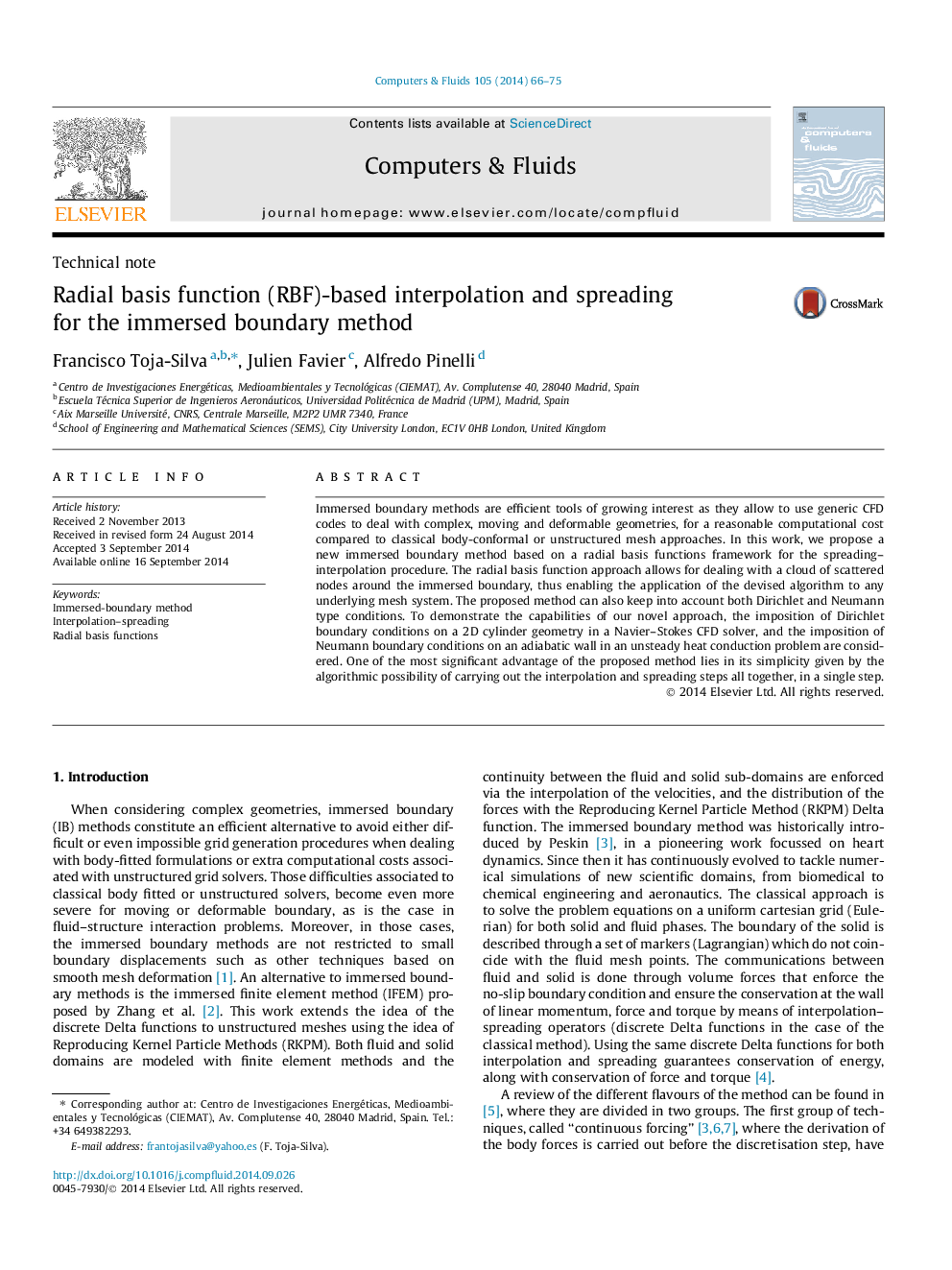| Article ID | Journal | Published Year | Pages | File Type |
|---|---|---|---|---|
| 761751 | Computers & Fluids | 2014 | 10 Pages |
•A new RBF-based interpolation–spreading procedure for immersed boundary is presented.•Dirichlet boundary conditions are applied on a 2D Navier–Stokes solver.•Neumann boundary conditions are applied on the heat equation.
Immersed boundary methods are efficient tools of growing interest as they allow to use generic CFD codes to deal with complex, moving and deformable geometries, for a reasonable computational cost compared to classical body-conformal or unstructured mesh approaches. In this work, we propose a new immersed boundary method based on a radial basis functions framework for the spreading–interpolation procedure. The radial basis function approach allows for dealing with a cloud of scattered nodes around the immersed boundary, thus enabling the application of the devised algorithm to any underlying mesh system. The proposed method can also keep into account both Dirichlet and Neumann type conditions. To demonstrate the capabilities of our novel approach, the imposition of Dirichlet boundary conditions on a 2D cylinder geometry in a Navier–Stokes CFD solver, and the imposition of Neumann boundary conditions on an adiabatic wall in an unsteady heat conduction problem are considered. One of the most significant advantage of the proposed method lies in its simplicity given by the algorithmic possibility of carrying out the interpolation and spreading steps all together, in a single step.
